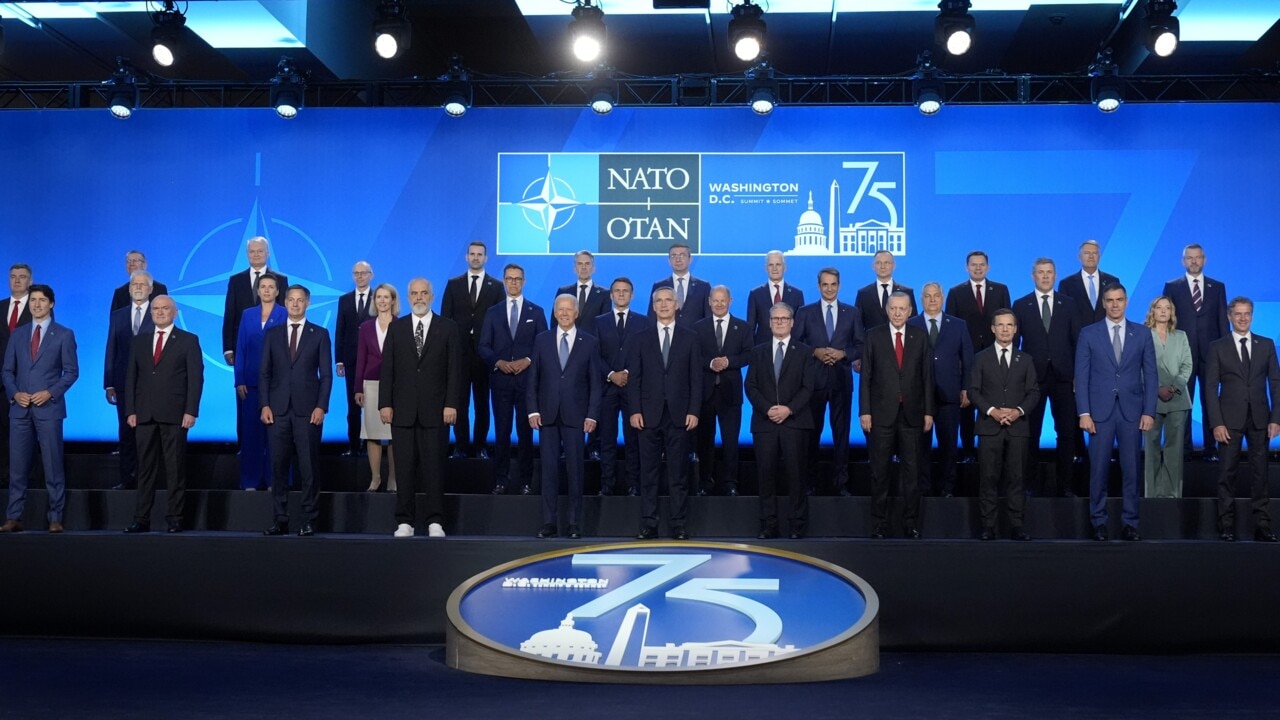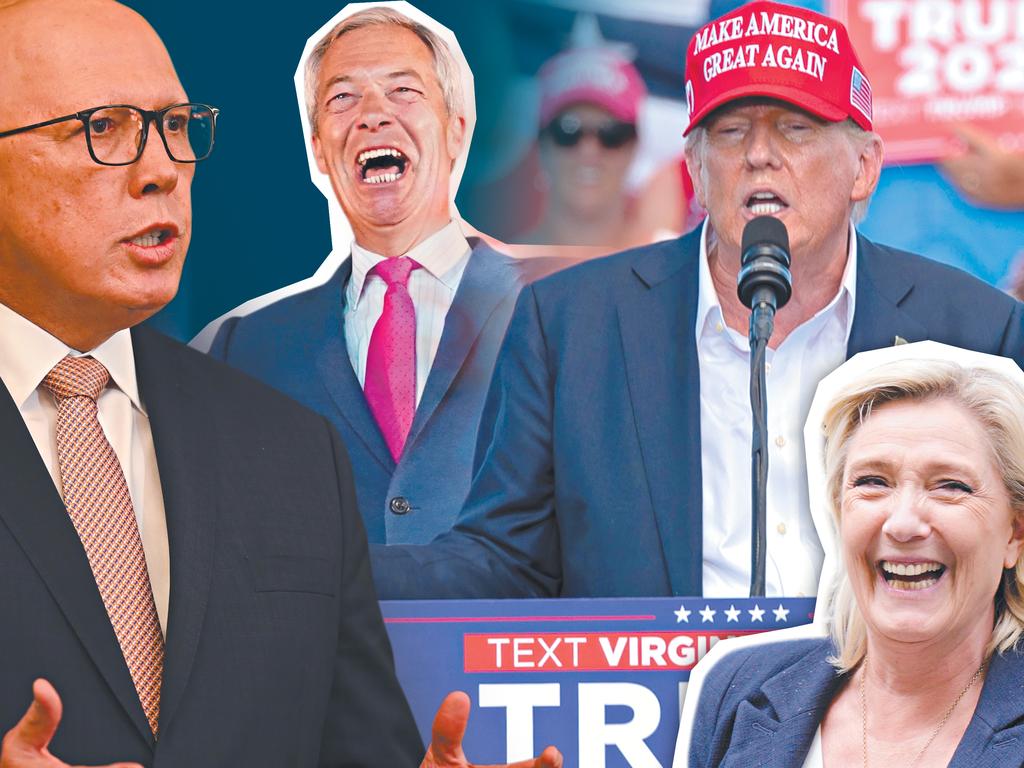
Hot wars rage in Ukraine and Gaza. The temperature is rising in Taiwan and the South China Sea. All are proxy fights in a larger battle for control of the 21st century as divided democracies face off against emboldened tyrannies.
It is a time when trade walls are rebuilt and armouries restocked. When Iran is on the cusp of producing nuclear arms but the most dangerous weapon may be the smartphone you hold in your hand.
The online war isn’t cold, it is ablaze as states steal secrets, compromise networks and lay virtual bombs on critical infrastructure in preparation for a real-world battle that may never come or could begin tomorrow. Cyberspace is also the vector that allows organised crime to steal into your bank and for twisted minds to steal into your child’s bedroom.
It’s an era of imperial companies colonising the world, hooking populations on the opium of their apps. When all the world’s a broadcaster and truth is the casualty. Where even the ability to sift fact from fiction collapses. A time when the new promise of artificial intelligence is written on the back of the old script of The Terminator.
It is an age when uncivil wars rage in democracies as their citizens build ethnic, cultural and political ghettos and cut the civic ties that bind a nation.
This is not a cold war. It’s a polar vortex. It is war on everything, everywhere, all at once. And the old Cold War had a happy ending. A few pages into the script for this new one and it reads like a snuff movie.
In Prague you can wander through a museum to communism that, apart from most university campuses, is the only place that wretched ideology still lingers. Czechoslovakia’s Velvet Revolution of 1989 was one of many uprisings that surged through eastern Europe and swept away the Soviet Union. The evil empire collapsed; the wall in Berlin fell. There was no nuclear Armageddon. The West won without firing a shot.
The early 1990s was a time of optimism. Charles Krauthammer wrote of “the unipolar moment” with the US emerging as the sole superpower and the rare opportunity to fashion a better future. Francis Fukuyama declared the “end of history” as humanity’s sociocultural evolution arrived at the door of liberal democracy.
But history rolled on and over that hope like a tank at Tiananmen Square. Historians will struggle to unravel what went so wrong, so fast, but it would be a mistake to look at our adversaries for the answer. Maybe the biggest fault lies with us. Maybe the West had a once in forever chance to underline the best of its values and blew it. Maybe part of the answer is that it was let down by the hubris, selfishness and short-sightedness of its political, financial and academic leaders
There were lots of political mistakes but nothing looms larger than the wars in Iraq and Afghanistan. If the US had limited its action after the attacks of September 11, 2001, to finding and killing Osama bin Laden and holding those who supported him to account the world would be a much safer place.
Instead, president George W. Bush and his advisers at the helm of the only superpower decided they could split their forces and fight two wars. Removing Saddam Hussein in Iraq left a power vacuum that Iran filled, and the US has been bogged in the eternal mire of Middle Eastern politics ever since.
America won the Iraq war but lost the peace and it lost its moral authority in the cells of Abu Ghraib. There, it was not prisoners tortured and humiliated by soldiers that were debased, it was democracy.
The flat retreat from Afghanistan underlined the limits of US power and raised unanswerable questions for those who served, and the families of those who died, as to what that war was all about. This is no small matter; to have the will to fight, the fight must have meaning.
In finance, the West’s best minds devised ever more baroque ways to make money for themselves without making anything of real value.
In the global financial crisis the Ponzi scheme came undone. Short-term gains trumped long-term stability and the banks had to be bailed out by taxpayers. And who was ever punished?
Somewhere on the road of intellectual exploration the humanities took a turn down the cul-de-sac of groupthink, victimhood and resentment. The universities that should be the champions of free speech and contestable ideas became their enemy and spawned vandal dogmas that are gnawing at the foundations of the West.
The hope is that when great trials come, great leaders emerge. But where are they? Where are what TE Lawrence called the dreamers of the day? For him, those who dream by night wake up to find it was a vanity, “but the dreamers of the day are dangerous men, for they may act their dreams with open eyes to make it possible”, he wrote in Seven Pillars of Wisdom.
Xi Jinping and Vladimir Putin are dreamers of the day but unfortunately, for most others, their dreams are the stuff of nightmares.

What is the best the West has to offer? In the US there is a mobility scooter crash of an election contest between two geriatrics. It’s a race between the senile and the puerile.
In Britain the Conservative Party has been decimated, rightly, having squandered its years in power after delivering a long essay in self-indulgence. But Britain’s unforgiving electoral system masked the fact that the thumping Labour majority came on a lower share of the vote than Jeremy Corbyn won in 2017. Even on election night it was being called the “loveless landslide”.
Here the Liberals and the Nationals are equally culpable for their epic fall from power. They start the next race from so behind that a victory would relegate Scott Morrison’s “miracle” to an electoral footnote in the history of unlikely comebacks.
Labor enjoys the comfort of ministerial seats, but it is now permanently parked on one-third of the primary vote and the long dark night of minority government looms.
Like the nameless era in which we live, both major parties suffer from a lack of definition. What do they stand for?
Naming things is important because it helps us understand them, and if you do not have a clear idea of what you stand for then you stand for nothing.
The major parties did a good job of governing Australia in the 20th century. Between 2010 and 2015 both began to lose their meaning. If they mean to survive in the 21st century they need to plant their feet and tell us clearly what they are and where they mean to lead us in these turbulent times.
Otherwise they will both be written out of the script.








The New Cold War just doesn’t scan as the working title for this era and needs a rewrite. It doesn’t work because it sells the story short. This age isn’t defined only by the return of strategic competition between two nuclear-armed superpowers and this war isn’t cold.